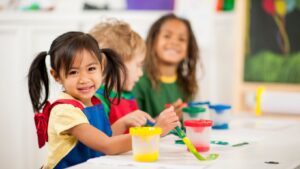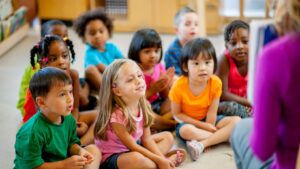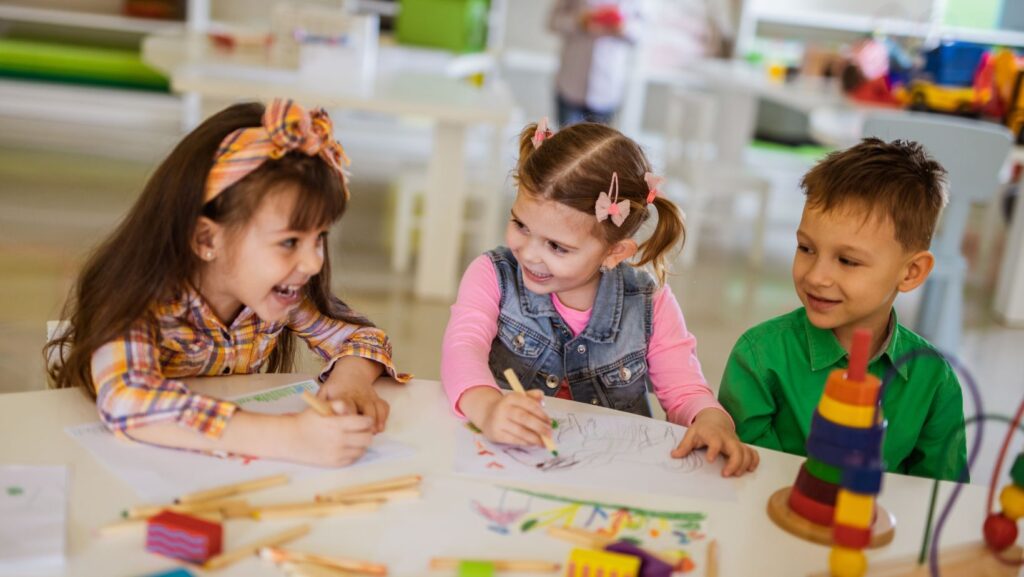When it comes to fostering a child’s development, nothing beats the power of play. Preschool family activities aren’t just about fun and games; they’re a crucial part of a child’s early learning journey. They provide an opportunity for parents and children to bond, while also promoting cognitive, physical, and social growth.
In this digital age, it’s more important than ever to invest time in hands-on, interactive activities that engage young minds and bodies. From creative crafts to educational games, there’s a world of preschool family activities waiting to be explored. This article will delve into some of the most beneficial and enjoyable activities that families can do together, strengthening relationships while supporting early learning.
Preschool Family Activities
 Optimized preschool family activities up the ante on a child’s development. Emergent literacy, numeracy skills, and motor proficiency all find enhancement through engaging activities. As data from numerous exploratory studies suggests, participation in these activities correlates positively with a child’s cognitive growth and overall intelligence. To illustrate, consider an activity such as simple cooking with young children. This seemingly uncomplicated task has multiple facets – reading and understanding the recipe invigorates literacy skills, measuring ingredients with accuracy boosts numeracy competency, and the physical act of stirring, mixing or chopping aids in motor skills development.
Optimized preschool family activities up the ante on a child’s development. Emergent literacy, numeracy skills, and motor proficiency all find enhancement through engaging activities. As data from numerous exploratory studies suggests, participation in these activities correlates positively with a child’s cognitive growth and overall intelligence. To illustrate, consider an activity such as simple cooking with young children. This seemingly uncomplicated task has multiple facets – reading and understanding the recipe invigorates literacy skills, measuring ingredients with accuracy boosts numeracy competency, and the physical act of stirring, mixing or chopping aids in motor skills development.
Furthermore, preschool activities foster problem-solving abilities and hone creative thinking in children. When presented with an origami art task, for instance, a child not only learns to follow directions but also imbibe spatial and problem-solving skills – arriving at a paper crane from a flat square involves critical thinking. Sprinkle these activities into the regular routine magnifies such benefits.
Strengthening Family Bonds
In addition to developmental gains, preschool family activities solidify family ties, leading to emotionally healthier children. From analysis offered by psychology research, a simple activity like family game night contributes to better parent-child relationships, reduced behavioral issues, and improved emotional health.
One can watch bonds deepen during activities like group storytelling or shared gardening – communication channels open up, empathy blossoms, and emotional bonds firm up. For instance, working together on a vegetable patch encourages cooperation, instills responsibility, and forges shared memories. These experiences allow for substantial relationship building opportunities, thereby strengthening family bonds.
Creative Preschool Family Activities
As the importance of hands-on learning becomes more evident, particularly in the preschool years, families actively seek creative activities to enhance their children’s key skillsets. This section details two categories of such activities: Arts and Crafts Projects, and Cooking and Baking Together.
Arts and Crafts Projects
 Arts and crafts projects, a timeless preschool activity, contribute to a child’s cognitive and motor skill development. Examples include painting with watercolors, creating paper mosaics, or using clay for sculpture. These projects stimulate a child’s imagination, foster their creativity, and improve their fine motor skills.
Arts and crafts projects, a timeless preschool activity, contribute to a child’s cognitive and motor skill development. Examples include painting with watercolors, creating paper mosaics, or using clay for sculpture. These projects stimulate a child’s imagination, foster their creativity, and improve their fine motor skills.
Moreover, such activities permit the child to manipulate a variety of materials, offering tactile feedback that enhances their sensory skills. Limitless in potential, they create opportunities for the child to make decisions, solve problems, and experiment—translating ideas into physical objects while advancing their spatial awareness.
Just as importantly, arts and crafts projects offer a medium of expression, encouraging children to articulate emotions and thoughts they might find challenging to communicate verbally. A joint effort in such projects can pave the way for open communication within the family, nurturing bonds and creating cherished memories.
Cooking and Baking Together
Involving preschoolers in cooking and baking activities sparks their curiosity, promotes their sense of autonomy, and develops their understanding of cause and effect. Simple tasks such as measuring ingredients act as practical math lessons, teaching number sense, estimation, and fractions, for instance, pouring half a cup of flour or counting the number of eggs required for a recipe.
The sensory experiences associated with cooking—from the scent of spices to the feel of dough—also develop their sensory skills. Cooking promotes their comprehension of scientific concepts such as heat changing the state of ingredients.
Engaging preschoolers in safe and navigable culinary projects like making a sandwich or baking cookies fosters togetherness. It’s a valuable lesson on the importance of teamwork, as family members collaborate to create a tangible—and usually delicious—result. This co-creation results in a sense of accomplishment, boosting their self-esteem and confidence

